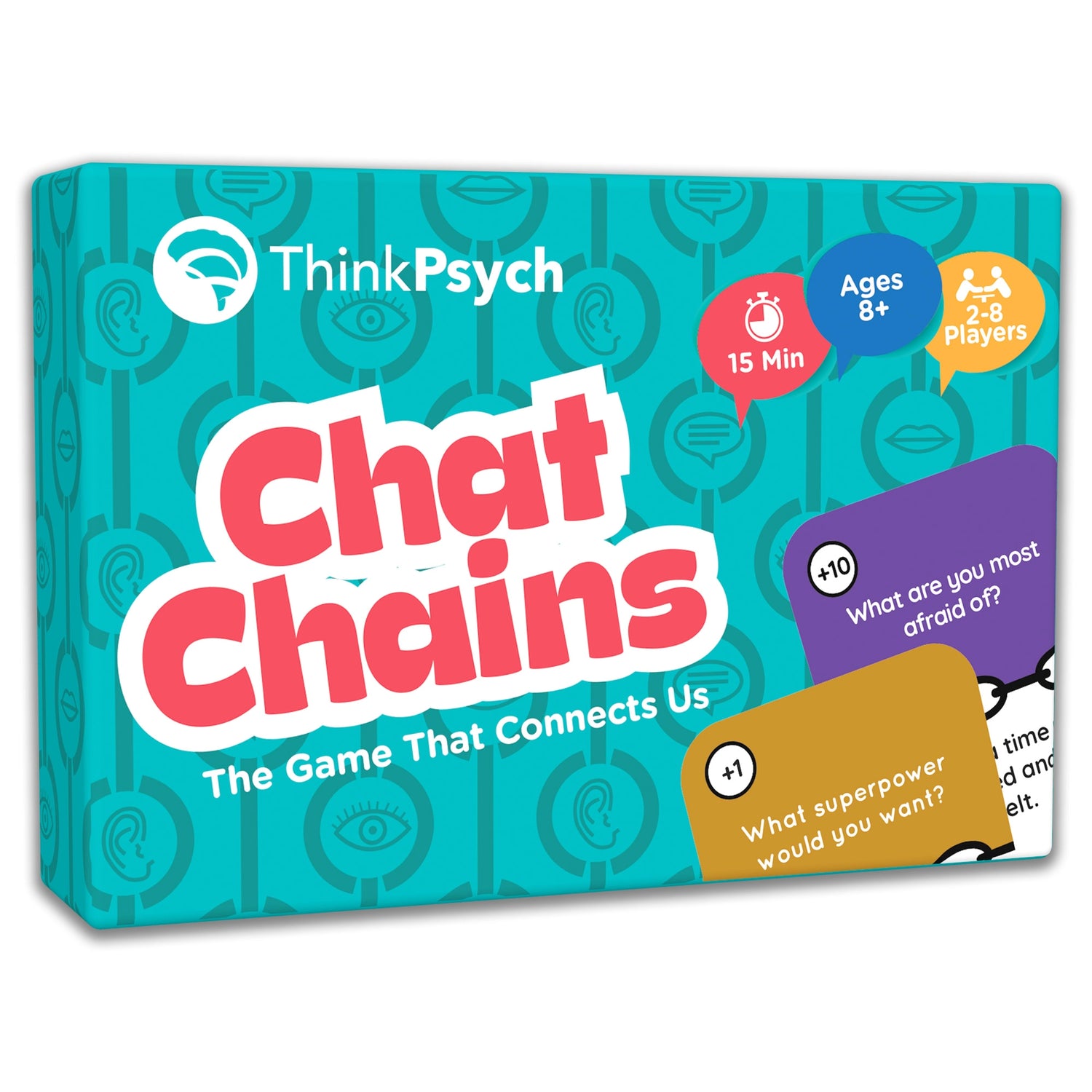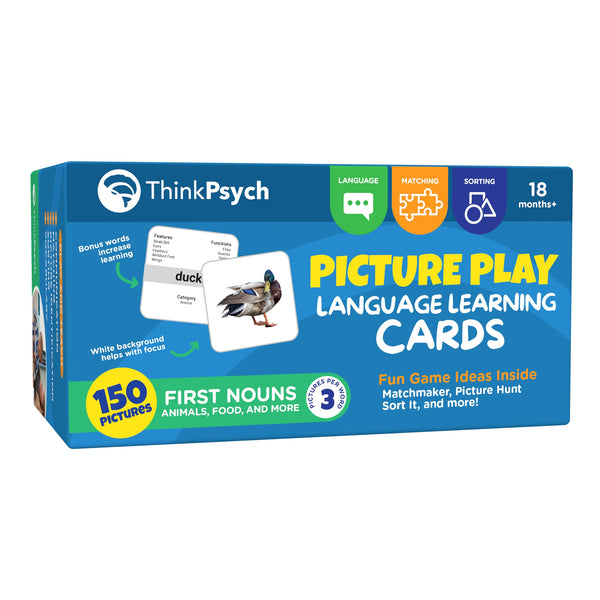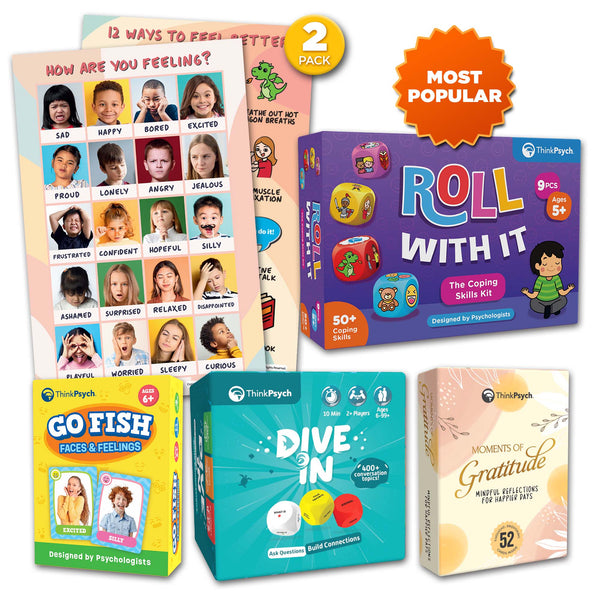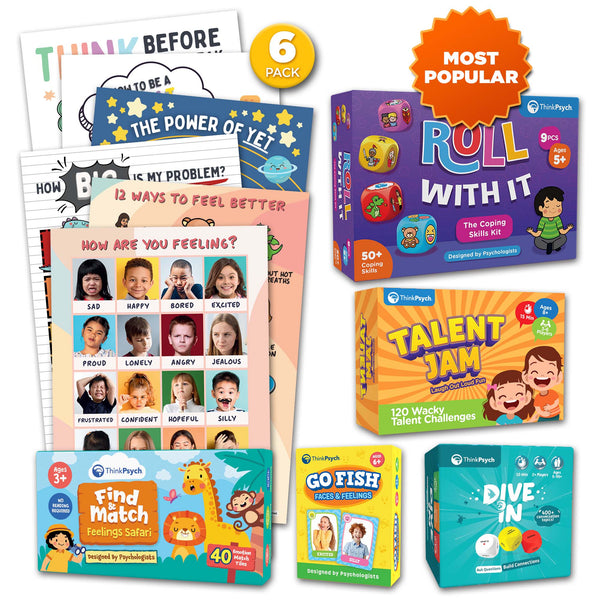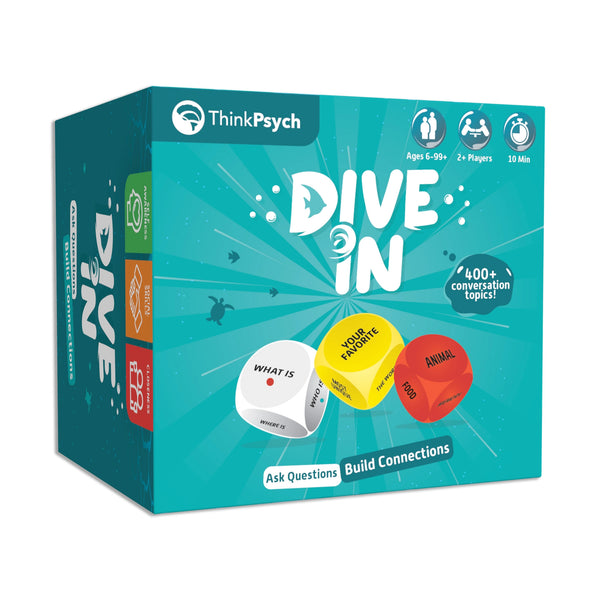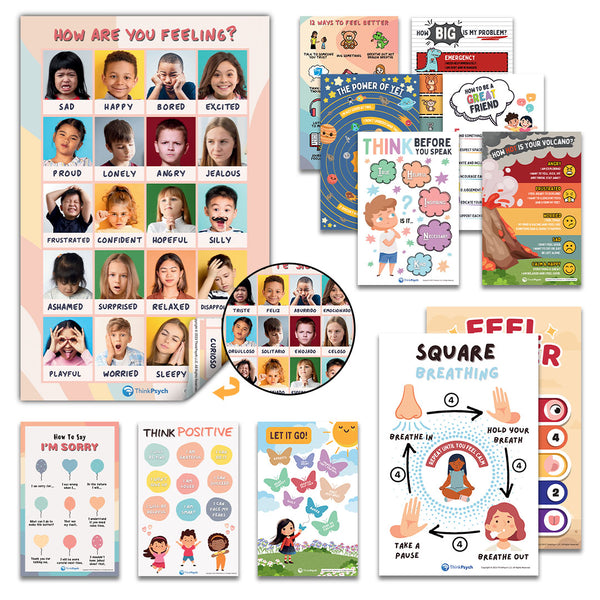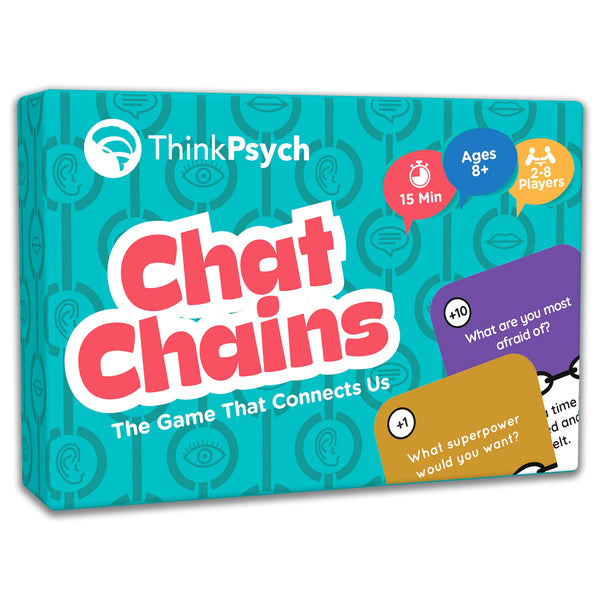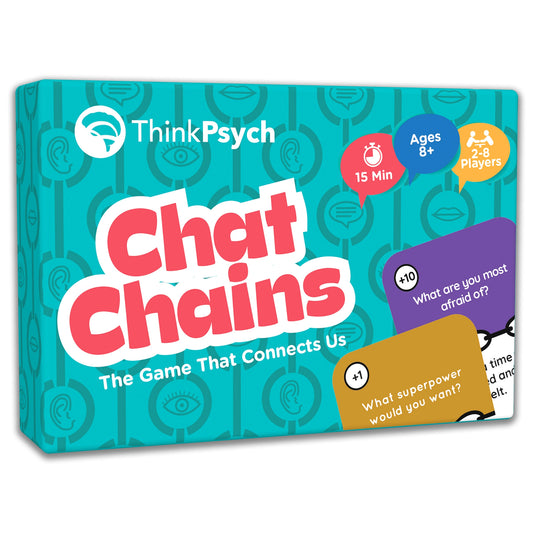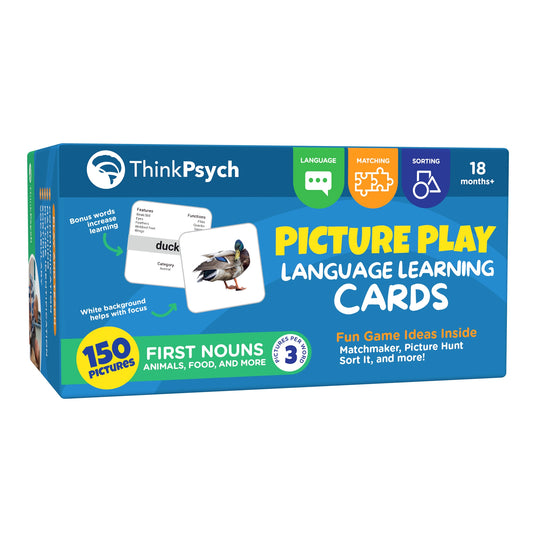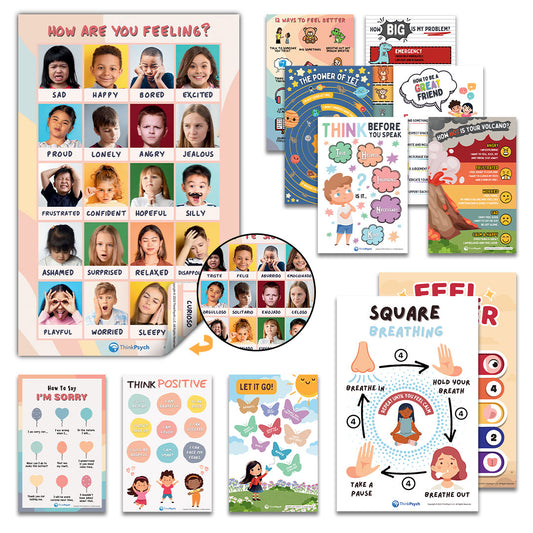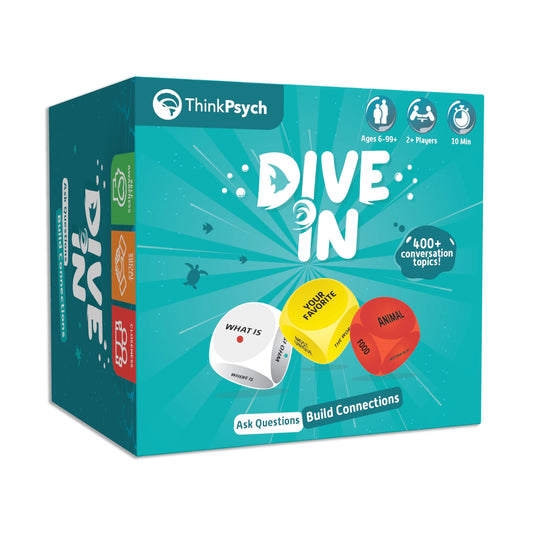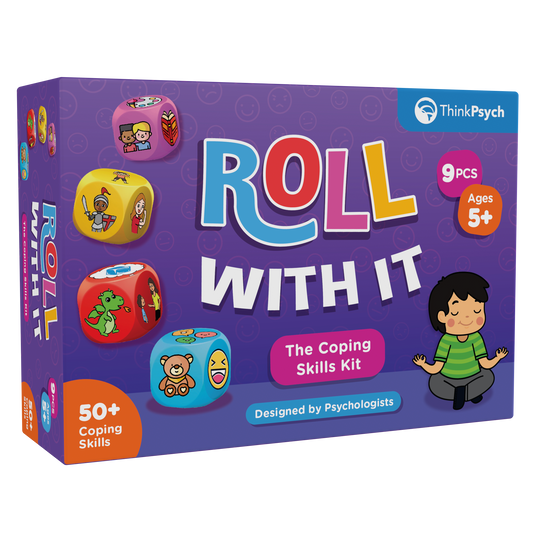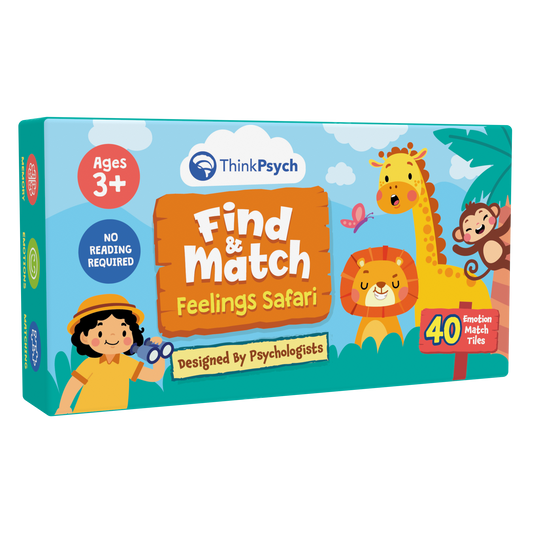
How to Foster Meaningful Play for Your Child
Share
Playtime may involve plenty of kicks and giggles, but there’s much more going on. Play is an essential activity for kids to not just explore their world, but learn key social and cognitive skills.
Unfortunately, kids are spending increasingly less time playing today. New research suggests that kids spend 56% more time using technology than playing outside.
That’s why it’s so vital to foster meaningful play for your child. To help you out, our experts at ThinkPsych have put together strategic tips to encourage your child to play and explore more.
The Importance of Meaningful Play
Luckily, children tend to be naturally curious about the world. Playtime is their way of exploring and understanding new concepts. As a parent, it’s important to protect your child’s playtime, as it’s a key step in developing how to:
- Express imagination and creativity
- Foster empathy and perspective-taking
- Communicate and negotiate with others
- Learn key social skills, such as sharing and collaboration
- Enhance problem-solving and concentration
- Fine-tune motor skills through active play
- Encourage risk-taking and trial-and-error
- Reduce stress and build coping mechanisms
- Enjoy shared experiences
- Boost confidence
Overall, playtime is a safe space for kids to undergo social, cognitive and emotional learning.
Expert Tips for Fostering Meaningful Play
Of course, meaningful play isn’t just setting your child in front of the TV. Although we live in a hyper-digital world, the most impactful play involves your child letting their imagination roam wild and engaging with others. Here’s how you can prioritize high-quality playtime at home.
1. Set Up a Discovery Play Area
Create a play area that your child can explore in their free time. This could be as simple as a corner or cabinet. Include a good variety of play items, such as blocks, books, crafts, puzzles and other toys. Ideally, your kid can independently access this area to discover new activities and games.
2. Use Open-Ended Materials
Don’t underestimate the power of open-ended materials. Besides your usual toys, give your child access to items that can be interpreted and used in diverse ways.
For example, your recycling may be a treasure trove for your kid’s imagination. A big cardboard box can become a train or a house. Other materials may include egg cartons, bubble wrap, bottle caps, ribbons, scrap paper and more.
3. Leverage Multisensory Play
It’s a good idea to expose your child to all five senses during playtime. While it’s common to have toys to see and touch, don’t forget to get a range of textures and colors. You might also incorporate hearing and smell through activities that involve music, cooking or more.
4. Follow Your Child’s Lead
Playtime should be your child’s party, not yours. Enable your kid to take the lead and discover their interests. When your kid takes the lead, they learn to imagine, problem-solve and make their own choices. You may be amazed by the things they come up with!
Shop ThinkPsych Products
5. Ask Questions and Make Suggestions
When your child is playing independently, there’s no need to engage or interrupt. However, sometimes they need some extra support getting started. You might trigger their interest by asking a question or making a suggestion. For example, if they’re playing with blocks, you might inspire them by suggesting they create the town where their imaginary friend or favorite stuffed animal lives.
6. Be 100% Present
If your child is keen to have you participate in their playtime, make sure you’re fully present. Engage your child by looking them in the eye, responding to their actions and interacting within the rules of their play world. Doing so models to your kid how to build connections and collaborate with others. Overall, avoid checking your phone or multi-tasking as you're playing with your child.
7. Turn Everyday Activities Into Play
No need to get fancy about your kid’s toys! Even everyday activities are opportunities to play and interact with your child. Making a snack, cleaning the house, gardening or taking a walk can be great for play.
Don’t be afraid to ask your kid to join you in “errands.” For example, cooking dinner together is perfect for playing with textures, smells and tastes, as well as learning how to measure and getting creative with ingredients.
8. Try New Environments
Playtime shouldn’t be limited to your house. Encourage your child to enjoy other types of spaces, such as the local park, library and pool.
Specifically, support outdoor play, as your kid will get exposed to new stimuli. American kids spend 35% less time playing outside compared to their parents, so try to get more time out of the house. You might even try going on a field trip somewhere beyond your usual routine, such as a lakeside or hiking path.
9. Limit Technology Play
Technology is a vital part of our lives in today’s era. While there are high-quality educational apps, movies and digital games, try to limit your kid’s screen time.
Often other types of play are crowded out by the ease of playing a cell phone game or watching a YouTube video. Be sure you’re fostering play that’s screen-free, so that your kid can spark their imagination and explore their real-world surroundings.
10. Avoid “Correcting” Your Child’s Play
Finally, empower your child to play on their own terms. While it’s tempting to “correct” their play with your ideas, let their imaginations wander. This will support their independent sense of play and allow them to experiment with new concepts. Avoid telling your kid what to do or that their ideas don't “make sense.” Playtime should always be a safe space where anything is possible!
Boost Meaningful Play and Build EQ With ThinkPsych
Playtime is a magical moment in children’s lives. At the same time, it’s critical for developing new social and cognitive skills. Try out our expert-backed tips above to encourage your child to engage in meaningful play.
At ThinkPsych, we strive to support your kid’s developmental journey. Playtime is just one aspect of building emotional intelligence during childhood. Try out our EQ-focused games to boost your child’s skills. And for more information about empowering your child’s development, check out our ThinkPsych blog!
References:
- National Association for the Education of Young Children, Five Essentials to Meaningful Play, https://www.naeyc.org
- Whitby, How Do Children Learn Through Play?, https://www.whitbyschool.org
- GoodtoKnow, Kids' Playtime Is in Decline, https://www.goodto.com
- UNICEF, Learning Through Play, https://www.unicef.org
- Australian Children’s Education and Care Quality Authority, The Importance of Play in Children’s Learning and Development, https://www.startingblocks.gov.au
- Pexels, Girl With Wooden Toys, https://www.pexels.com
